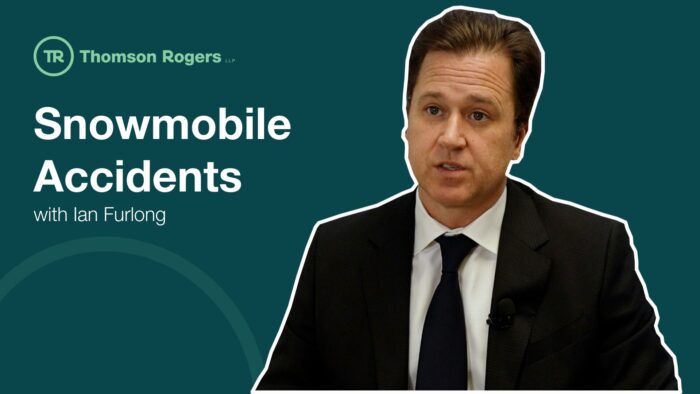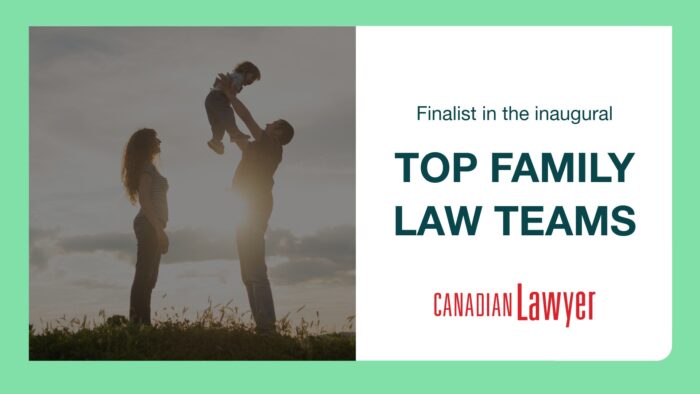Resolving Claims Involving Substitute Decision Makers
Author(s): L. Craig Brown
September 1, 2004
It is rare to be presented with a client who appointed a substitute decision maker before a catastrophic accident. Usually, family members will take on the decision making role informally until they assume the responsibility of being a Litigation Guardian in a lawsuit. More recently, the Courts are requiring that a more formal relationship between decision maker and incompetent person be established as part of the settlement approval process at the end of the litigation. It is no longer acceptable to appoint immediate family members as trustees of the proceeds of the settlement to the benefit of the catastrophically injured plaintiff.
Fortunately, recent legislation has provided processes for appointing formal decision makers who are accountable to the Court on an ongoing basis. Depending on the age of the injured plaintiff, the Office of The Children’s Lawyer or the Public Guardian and Trustee are involved in the process of appointing the guardians and of working out the terms of their mandates. This process needs to be carefully thought out in every case involving a catastrophically injured plaintiff, whether child or adult.
The resources of the Accident Benefits insurance policy can be used to fund an application to appoint family members as guardians of the injured person’s person and/or property. As soon as it is known that the injured person is likely to be and remain incompetent of managing their own affairs, the appropriate capacity assessments and/or medical reports should be obtained to support a motion. The Accident Benefits insurer should be advised of the necessity of the appointment and of the estimated cost of the motion to appoint the guardian. That expense falls under sections 14 and 15 of the Statutory Accident Benefit Schedule. If the insurer balks at the expense, the issue can be taken to mediation and, if necessary arbitration. Usually the insurer will recognize the necessity of the appointment of someone to manage the insured person’s affairs and will co-operate. This kind of motion is usually necessary only in cases that are designated catastrophic and therefore have medical rehabilitation limits of $1,000,000.00 making the expense of the motion a relatively minor one in the context of the case.
The appointment of a substitute decision maker for an adult plaintiff invariably involves a capacity assessment and an application made on notice to the Public Guardian and Trustee. The PGT has proved to be very helpful in reviewing draft materials for these applications and in making suggestions that are helpful in avoiding problems on the return of the motion. Usually with enough discussion and co-operation prior to the motion, the PGT will usually consent to the Order appointing the guardian without attending on the return of the motion.
A problem that often arises in the case of substantial claims is how the services of a guardian can be appropriately compensated. In addition, the expense of passing accounts and of hiring accountants and sometimes institutional trustees to assist in managing the estate can be considerable. These expenses must be advanced as a claim to the accident benefits insurer as well as in any lawsuit. Proper provision should be made in the settlement to meet these ongoing and sometimes significant costs.
Often the Court will not be content with the appointment of one guardian and will require two or more in order to ensure appropriate checks and balances and orderly transition in the event of the death or departure of one trustee. In cases involving minors the Court likes to see the appointment of an institutional trustee. To date it has been extremely difficult to find trust companies or financial institutions that are prepared to act in this role without also taking on the role of managing all of the assets of the minor. This is usually not possible because many large cases are resolved with a structured settlement that produces a stream of income adequate (or nearly adequate) to meet the expenses of the minor. That leaves very little for a trust company to manage and very little opportunity for the company to charge what it considers to be reasonable fees.
Currently, there is only one institutional trustee available. However, we are negotiating with other financial institutions to take on this role at a reasonable cost to the minor. There is no solution to this problem that meets all of the requirements of the incompetent person and his or her family.
In any event, in order to receive approval for settlement involving an incompetent person, the Court must be satisfied that the guardians are capable of managing the estate; of passing accounts at appropriate intervals; of using the proceeds of the estate to the benefit of the incompetent person and finally, are likely to be able to provide these services for the reasonable life expectancy of the incompetent person.
In smaller settlements involving children, the proceeds of the settlement can be paid into Court or can be invested in a structure that will become available to the injured plaintiff when he or she attains the age of majority or later. In settlements involving very large sums of money, a decision is usually taken by the Litigation Guardian to structure the settlement – a decision which often ties up the settlement long past the date on which the injured plaintiff attains the age of majority. These decisions must be made carefully by the Litigation Guardian in consultation with the Office of The Children’s Lawyer and ultimately with Court approval.
Where proceeds of the settlement need to be disbursed before the child reaches the age of majority, there are two possible alternatives. The first is to pay the money into Court and simply allow the parent to apply to the Accountant from time to time to have money paid out of Court to meet specific expenses. There is a fairly simple procedure to permit this to be done.
Where larger sums of money are needed or where there is a stream of income required, it would be necessary to appoint a family member as a guardian of the child pursuant to the Children’s Law Reform Act. The motion for this appointment can be brought with the motion for approval of the settlement. With the formal appointment of a guardian, the Court will usually permit money to be paid out of a structure to the guardian to be used for the benefit of the child on an ongoing basis. As part of the Order it may be necessary for the guardian to pass accounts from time to time – an expense which must be contemplated in the settlement.
Where a catastrophically injured child is unlikely to become competent at the age of majority, it will be necessary to appoint a guardian under the Children’s Law Reform Act and then bring a second motion when the child turns eighteen for the appointment of a guardian of person and property under the Substitute Decisions Act. The Order made by the Court when the settlement is approved will usually require that the guardian of the child arrange a competency assessment six months prior to the child’s eighteenth birthday with a further requirement that, if necessary, a motion be brought to appoint a guardian of person and property.
The choice of guardians is critical. The obvious choice is one or more parent, however in many cases the life expectancy of the injured child will exceed the life expectancy of the parents and arrangements should be made for a sibling or younger family member to be on standby to be appointed as a guardian or even to be appointed as a co-guardian.
In all of these complex matters, The Office of The Children’s Lawyer and the Public Guardian and Trustee should be viewed as collaborators in an effort to ensure that the estate of the incompetent plaintiff is managed carefully and well for the benefit of that person. The issue of continuity and longevity of the guardians is a challenging one that needs to be reviewed carefully in any management plan if the plan is going to receive the approval of the Court under the new, much stricter criteria now being applied by Ontario judges for approval of settlements involving incompetent persons.
Share this





